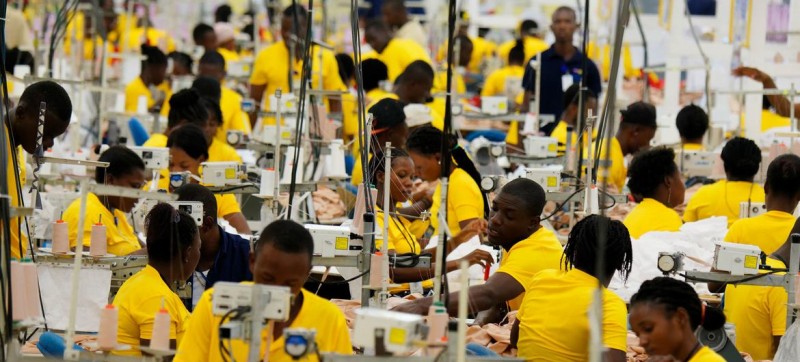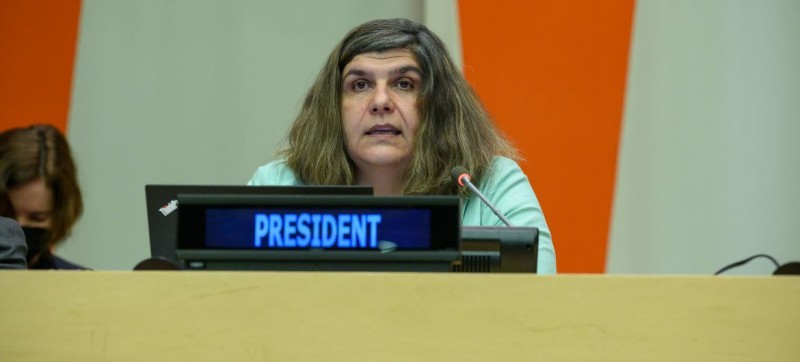
© ILO/Marcel Crozet Young people in Haiti have the requisite skills to secure work in garment factories.
“Putting people first means we must create opportunities for young people to accumulate knowledge and skills relevant for the labour market through education, training, and early work experience,” Lachezara Stoeva said. The current dim projections for global economic growth simply require it.
Amid multiple global interconnected crises, advancing efforts to achieve the 2030 Agenda for Sustainable Development hinges on giving people the tools needed to build resilient societies and economies. Opening the Commission’s sixty-first session, she outlined how best to do so.
Tweet URL
Half-way point to 2030
Approaching the half-way point in the 2030 deadline to achieve all 17 of the SDGs, she said Member States have clear responsibilities as the world pursues a transition to low-carbon and environmentally friendly economies and societies.
“To ensure a fair and inclusive transition, Governments have the responsibility to put people first,” she said.
They must support regions, industries, and workers facing the greatest challenges in the transition to a green economy, she said.
This requires policies that facilitate the reallocation of displaced workers alongside a range of other actions, including tailored job-search assistance, flexible learning courses, employment programmes, and hiring and transition incentives.
Universal social protection
Part of taking a people-centred approach means offering a universal social safety net that gives everyone access to comprehensive, adequate, and sustainable protection, she said.
The critical role of social protection systems – laid bare by the COVID-19 pandemic – remains integral in States’ efforts to build resilient economies and societies to reach the 2030 Agenda objectives.
Investing in human capacities is also essential for emerging and future demands of the job market, already affected by such factors as digital transformation, demographic trends and climate change, she said.

UN Photo/Loey Felipe Lachezara Stoeva, President of the Economic and Social Council (ECOSOC) 2023 Session.
Instilling 2030 Agenda values
“These structural transformations require complementary efforts in education, training and lifelong learning,” she stated. Such efforts must instill the values of inclusion, sustainability, and partnership enshrined in the 2030 Agenda.
During its sixty-first session, the Commission will focus on the social dimension of sustainable development. Discussions will broach on the creation of decent work and how it relates to inequality and poverty.
Translate talk into action
Ahead of the SDG Summit in September, the ECOSOC President said “we must work together to translate our discussions and conclusions into concrete actions towards achieving the SDGs by 2030.”
The Commission’s conclusions will feed into the Summit, where world leaders will follow-up and review the implementation of the 2030 Agenda. The gathering will mark the exact mid-point towards the 2030 deadline of achieving the Goals.

